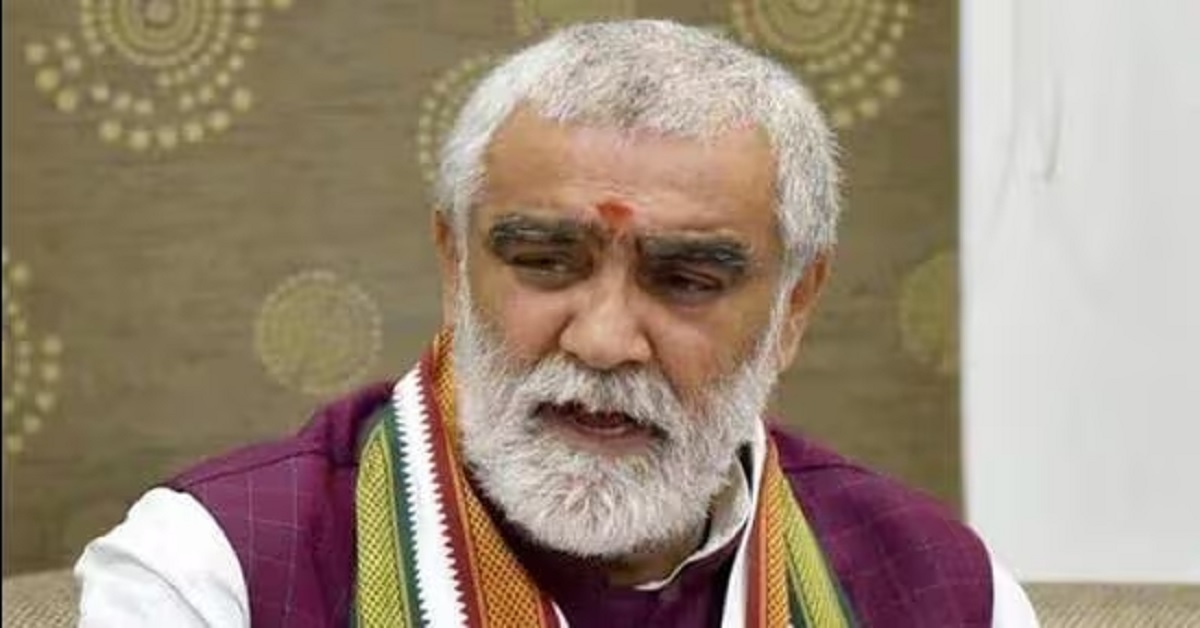In a detailed complaint submitted on November 12, 2025, to the Chief Electoral Officer of Bihar and the Election Commission of India, Citizens for Justice and Peace (CJP) has called for urgent action against BJP Member of Parliament Ashwini Kumar Choubey for making what it described as “deeply communal, derogatory, and population-targeting remarks” during an election campaign in Pirpainti, Bhagalpur, on November 9.
While the Model Code of Conduct (MCC) is in force for the ongoing Bihar Assembly elections, Choubey, a senior BJP leader and sitting MP, delivered a speech that directly targeted the state’s Muslim population. In his address, he appealed to “Muslim brothers” to “reduce their population” and claimed that “ghuspaithiye (infiltrators) are coming from across the border.” The remarks, CJP noted, deliberately conflated Indian Muslims with illegal immigrants and invoked communal stereotypes to create fear and prejudice among voters.
CJP is dedicated to finding and bringing to light instances of Hate Speech, so that the bigots propagating these venomous ideas can be unmasked and brought to justice. To learn more about our campaign against hate speech, please become a member. To support our initiatives, please donate now!
CJP has urged immediate intervention by both the Election Commission and state authorities to safeguard the neutrality and integrity of the electoral process.
A dangerous conflation of faith and foreignness
According to the complaint, Choubey’s remarks go beyond electoral rhetoric. They represent a calculated act of hate speech, portraying Indian Muslims as demographic threats and foreign infiltrators — a narrative that has become disturbingly frequent in election campaigns.
By stating, “Our population is also declining. I appeal to my Muslim brothers as well: reduce your population. Ghuspaithiye are coming from across the border… our government is working to remove them,” the MP collapsed the boundary between citizen and non-citizen, implying that the Muslim presence itself was suspect.
CJP’s complaint underscores that such rhetoric de-nationalises Indian Muslims, recasting them as outsiders within their own country — a move that weaponises religious identity to secure electoral advantage.
Clear violations of electoral and criminal law
CJP’s complaint meticulously details how the speech violates several provisions of law:
- Under the Representation of the People Act, 1951:
- Section 123(3) and (3A) — forbidding appeals on religious grounds and promotion of enmity between communities.
- Section 125 — making it a punishable offence to promote hatred in connection with elections.
- Section 123(2) — covering undue influence on the electorate through intimidation or communal fear.
- Under the Bharatiya Nyaya Sanhita, 2023:
- Section 196 — promoting enmity between groups.
- Section 297 — statements conducing to public mischief.
- Section 356 — outraging group dignity.
The organisation also cited violations of the Model Code of Conduct, which explicitly prohibits appeals to religion or acts that aggravate communal tension, and constitutional breaches of Articles 14, 15, 19, 21, and 25 — which guarantee equality, dignity, and freedom of conscience to all citizens.
A pattern of Islamophobic rhetoric
Pirpainti, a constituency in Bhagalpur district, has a mixed population and a history of communal sensitivity. In this context, CJP warned that such inflammatory remarks carry “dangerous polarising potential” — alienating Muslim citizens, normalising prejudice, and reducing the election to a contest over identity rather than policy.
The complaint places Choubey’s remarks within a wider and troubling pattern of electoral Islamophobia, where demographic myths and border anxieties are repeatedly used to stigmatise India’s Muslim citizens. It warns that this form of hate-driven politics seeks to redefine citizenship itself — who belongs and who does not — through the language of religion and fear.
Calling Choubey’s statements “hate propaganda delivered under the cover of governance and nationalism,” the complaint asserts that such conduct corrodes the very spirit of democracy. It notes that communal appeals not only distort voter choice but also legitimise bigotry as a form of governance, thereby eroding India’s secular foundation.
CJP invoked key Supreme Court precedents, including Abhiram Singh v. C.D. Commachen (2017), which forbids religious appeals in elections, and Pravasi Bhalai Sangathan v. Union of India (2014), which recognised hate speech as an assault on equality and fraternity.
CJP’s prayer and demands
Through the complaint, CJP has urged the Election Commission of India and Bihar’s election authorities to:
- Take immediate cognisance of the complaint.
- Register an FIR against Ashwini Kumar Choubey under relevant provisions of the Representation of the People Act and Bharatiya Nyaya Sanhita.
- Debar him from further campaigning pending inquiry.
- Issue a public censure and advisory to all political parties to desist from communal appeals.
The complaint concludes by calling upon the Election Commission to ensure compliance with the constitutional mandate of free, fair, and secular elections under Article 324.
The complaint may be read here.
Image Courtesy:hindustantimes.com
Related:
From Despair to Dignity: How CJP helped Elachan Bibi win back her identity, prove her citizenship
From ‘Tauba Tauba’ to ‘Expel the Ghuspaithiya’: The language of exclusion in Bihar’s election season
CJP urges YouTube to remove content targeting CJI Gavai from Ajeet Bharti’s channel

